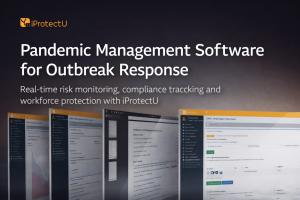The Stressors
From the pressure of managing large class sizes, meeting diverse student needs and navigating ever-changing school policies, the days of school leaders and staff are undoubtedly filled with relentless challenges. In addition, there are performance expectations and budget constraints to deal with as well as concerns for student welfare. This pressure can trigger the body’s fight-or-flight response, leading to anxiety, burnout and even depression.
The impact of this may cause a teacher to struggle to connect with students effectively, hindering that student’s learning and engagement. In a similar way, a leader who is experiencing stress may unknowingly create a tense school atmosphere, impacting the well-being of everyone in the vicinity.
The Department for Education (UK) Initiative
The Department for Education has announced £1.5 million to deliver a three-year mental health and wellbeing support package for school and college leaders, as part of new measures to improve recruitment and retention in the teaching profession. This mental health support package for educational establishments will provide professional supervision and counselling to over 2,500 school leaders.
In addition, the Department of Education will publish its progress update on the Education Staff Wellbeing Charter – after it was launched two years ago. This means that significant progress is being made towards prioritising the mental health of school leaders and staff. We must maintain this momentum and work on shifting the focus from reactive interventions to proactive preventative measures.
A Culture of Care
Investing in the mental health of school leaders and staff is not only an important duty of care but also an investment in the success of the school. We need to implement a multifaceted approach which addresses individual needs while fostering a supportive culture, through the following.
Prioritising Self-Care and Mindfulness: Encouraging practices and providing resources such as mindfulness training, stress management workshops, and access to counselling services.
Fostering Communication: Creating a school environment in which asking for help is not seen as weakness is crucial. This involves professional learning communities where educators can share experiences, offer peer support, and develop collaborative solutions.
Encouraging Work-Life Balance: Flexible work arrangements, reduced workloads, and access to on-site wellness facilities can all serve to improve staff well-being.
Partnerships with Mental Health Professionals: Establishing partnerships with mental health professionals provides support to educators facing challenges. This may involve offering confidential consultations, workshops on specific mental health issues, as well as crisis intervention training.
Nelson Mandela said, "Education is the most powerful weapon which you can use to change the world."
Let’s ensure our educational establishments are places where young minds can flourish, and the minds of those who guide them are given the support and strength to truly shine.








